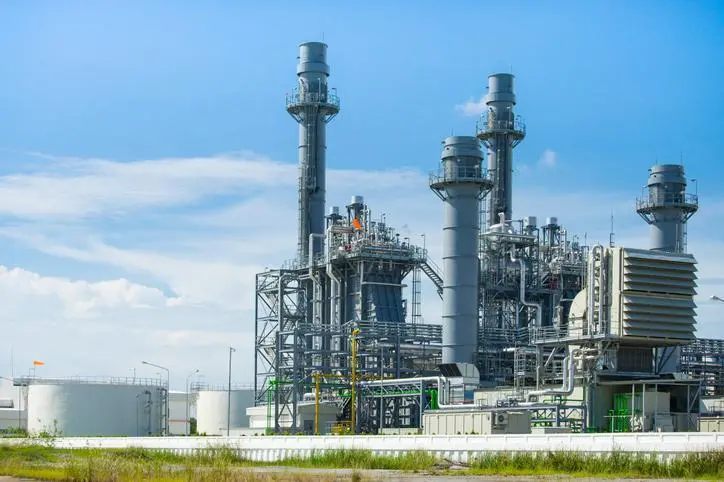PHOTO
Developing economies, like Nigeria, face a significant challenge: balancing the need for economic development with the urgent need to address climate change. This challenge lies at the heart of the fossil fuel dilemma, where countries heavily reliant on fossil fuels for energy and revenue must consider the consequences of transitioning to cleaner alternatives.
Nigeria’s reliance on fossil fuels
Nigeria, Africa’s largest oil producer and the continent’s most populous nation, is heavily reliant on fossil fuels. Oil and gas account for roughly 90% of the country’s export earnings and 80% of government revenue. This dependence fuels the economy, but it also comes at a significant environmental cost.
Related PostsWe’ll keep Nigeria as top-level destination for investments — TinubuNigeria’s Foreign Affairs Minister expresses worry over military coups in West AfricaNigeria not yet failed, but failing — Jega
Impact of fossil fuels
Nigeria is one of the most vulnerable countries to climate change, experiencing increased droughts, floods, and rising sea levels. Burning fossil fuels is a major contributor to these changes, further jeopardizing the country’s food security, water resources, and overall development.
The transition dilemma
Phasing out fossil fuels is crucial for mitigating climate change, but it presents a significant challenge for developing economies like Nigeria. A rapid transition could lead to:
Economic slowdown: Job losses in the oil and gas sector, reduced government revenue, and potential energy shortages could hurt economic growth.Social unrest: Communities dependent on fossil fuels for income could face hardship and instability during the transition.Limited access to energy: Without adequate resources and infrastructure, transitioning to renewable energy could leave many without reliable and affordable energy access.
Nigeria’s Energy Transition Roadmap
Recognisng the challenges and opportunities of transitioning away from fossil fuels, Nigeria has developed an Energy Transition Plan (ETP). The plan aims to achieve net-zero emissions by 2060 while ensuring energy security and economic prosperity.
Key elements of the ETP include:
Diversifying energy sources: Investing in renewable energy sources like solar, wind, and hydropower.Improving energy efficiency: Reducing energy consumption across all sectors.Creating a green jobs market: Developing new skills and opportunities in renewable energy and related industries.Ensuring a just transition: Protecting vulnerable communities and workers affected by the transition.
Challenges and opportunities
While the ETP presents a roadmap for Nigeria’s energy transition, significant challenges remain. These include:
Funding the transition: The ETP requires significant investments in renewable energy, infrastructure, and social support programmes.Overcoming political and vested interests: Powerful actors in the oil and gas industry may resist the transition.Building capacity: Developing the necessary skills and expertise for a sustainable energy future.
Despite the challenges, there are also significant opportunities for Nigeria in transitioning away from fossil fuels. These include:
Boosting economic growth: Renewable energy can create new jobs and stimulate economic diversification.Improving energy security: Reducing reliance on imported fossil fuels can provide greater energy independence.Addressing climate change: Nigeria can play a leading role in combating climate change and ensuring a sustainable future for the continent.
The way forward
Nigeria’s path to a cleaner energy future will require careful planning, international cooperation, and unwavering commitment. The success of the ETP will depend on:
Strong political leadership: Government policies and regulations must incentivise renewable energy investments and provide support for communities and workers affected by the transition.International support: Developed countries should provide financial and technological support to developing countries like Nigeria to facilitate a just and equitable transition.Public awareness and engagement: Building public understanding and support for the transition is crucial for its success.
Nigeria’s energy transition journey serves as a microcosm of the global challenge of transitioning away from fossil fuels. By navigating this complex dilemma, Nigeria can pave the way for a more sustainable and equitable future for its people and contribute significantly to global efforts to address climate change.
Conclusion
The transition away from fossil fuels presents a challenging yet essential endeavour for developing economies like Nigeria. While the challenges are significant, the potential benefits for the environment, economy, and overall sustainability are immense. By embracing innovation, fostering international collaboration, and ensuring a just transition, Nigeria can transform its energy sector and secure a prosperous and sustainable future for its citizens.
Olubunmi Bashiru (available at [email protected]) sent this in from Houston, Texas
Copyright © 2022 Nigerian Tribune Provided by SyndiGate Media Inc. (Syndigate.info).





















